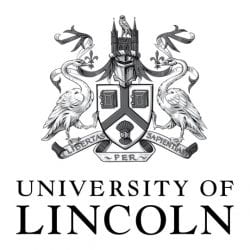A range of exhibitions, events and displays will celebrate Lincoln’s engineering heritage and highlight its present day prowess, as well as showcasing innovations for the future.
The University of Lincoln, City of Lincoln Council and Lincoln College are working with a number of engineering firms to deliver an event that will inspire the next generation to pursue a career in the engineering sector.
Dr Colin Dowding, senior lecturer at the University’s School of Engineering, has coordinated a series of talks to take place in the Chapter House, with presentations and displays targeted at highlighting opportunities for young people to study and train for a role in the industry.
He said: “The engineering sector is a major contributor to the UK economy; but interestingly, engineers statistically deliver double the input to the exchequer of the average worker. This means that engineers are in great demand both in the UK and worldwide. Engineering is an extremely broad and varied profession that requires expert understanding of the physical and mathematical sciences for application in projects that affect everybody’s daily life. The Celebration of Engineering event has been developed to showcase the engineering expertise in Lincolnshire, its relevance and how the education centres of Lincoln can help you or your children to be a part of it.”
Interactive displays, exhibitions, schools’ competitions, a timeline and stands plus a tour of the city’s engineering centres will also be part of the celebration weekend.
The cathedral and its grounds will be the focus of much of the activity with an archive exhibition along with displays depicting the city’s links to the aviation industry being staged at The Collection in Danes Terrace.
Others staging displays and stands in the cathedral include local engineering companies, Lincoln College, Cathedral Architects and Structural Engineers, Lincoln Engineering Society, Friends of Lincoln Tank and Civil Engineers.
Saturday will see children from local primary and secondary schools taking part in specially designed challenges for the day. With the support of Lincoln College there will also be a competition for teams to compete on the assembly of a go-kart against the clock.
The day will be rounded off at 4pm with a special guided bus tour taking in old and new sites linked to engineering in the city.
Halina Davies, City Council Interim Economic Sustainability and Tourism Programmes Manager, said: “We are really excited about what should be a fascinating weekend for those who live, work or study in the city as well as visitors. It is a fantastic opportunity to share with today’s young people the diversity of the engineering sector and move away from the stereotypical assumptions of the past. While highlighting Lincoln’s industrial heritage it is even more important to show how it has evolved today with its significant economic contribution and the opportunities that exist in the future.”
Entry to the Cathedral is free on Saturday (10am to 4pm) and Sunday (12pm to 3pm) with normal charges applying on Monday. Entry to The Collection will be free over the entire weekend.
If you or your organisation would still like to take part in the event or you want to find out more go to www.visitlincoln.com








